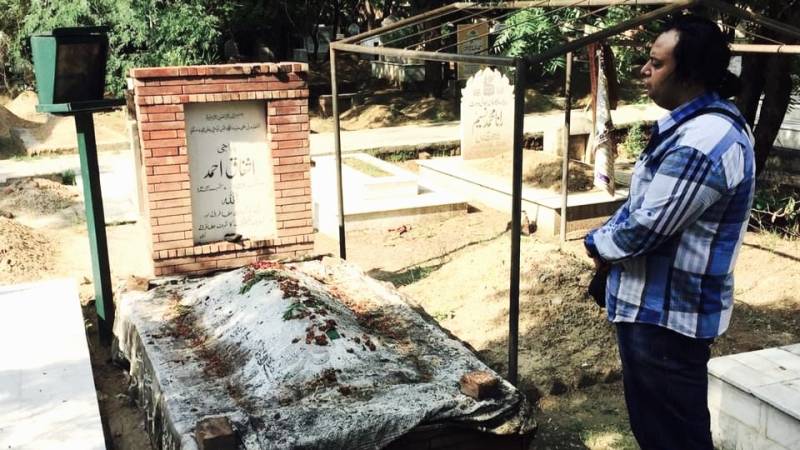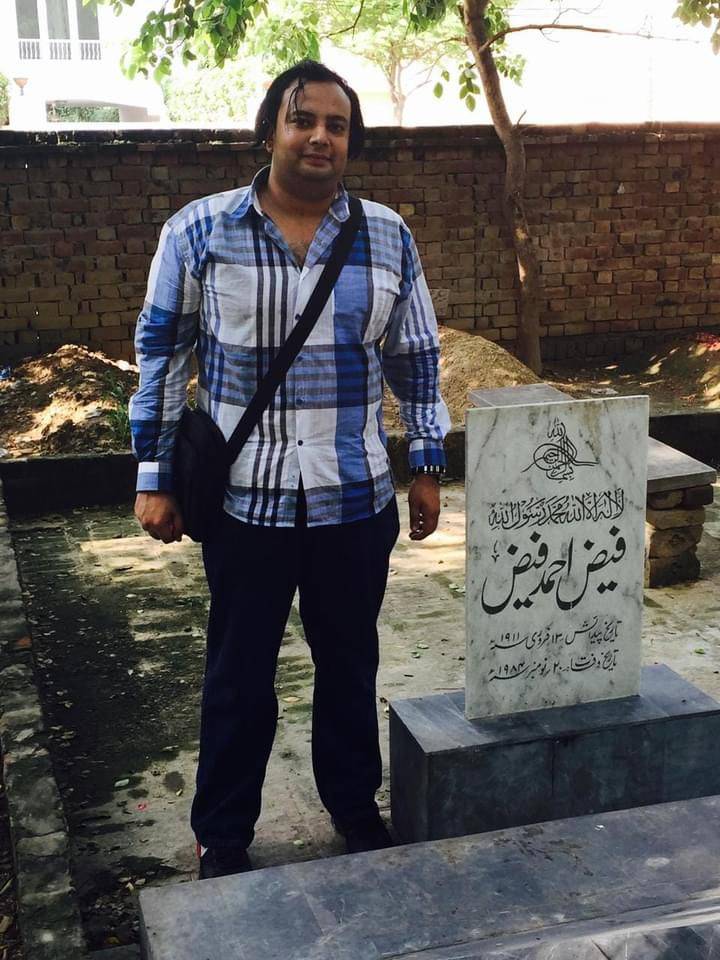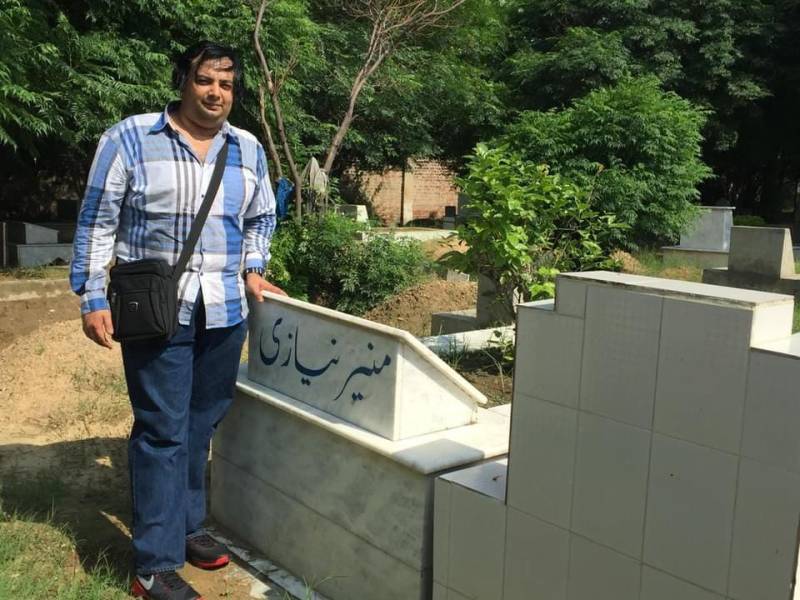
On June 20, a God-fearing devout Muslim, 36-year-old Sulaiman Qamar, thought he was touring a sliver of Paradise on Earth, watching the cold, green waters of the Swat River and high, lush green mountains. Little did he know, he would soon be dragged into the depths of hell with his body set alight by a bloodthirsty mob screaming blasphemy.
At one point, Sulaiman may have believed he had been rescued when police took custody of him after he had been hunted down in broad daylight in the Madyan Bazaar. But the monsters had made arrangements for a bonfire that involved him being placed in the middle of the fire to satiate their bloodlust.
But who was Sulaiman, and what meanderings of life brought him to Swat on that fateful day?
Advocate Jawad Mir, who hailed from Sulaiman's native Sialkot and was well acquainted with the victim and his family, has offered insights into the victim's life.
Early life
"Sulaiman was born on November 29, 1987, to Qamar Aziz in a small house in Bilal Street, Mahalla Pakpura, Sialkot," Mir began. He described Sulaiman's caste as belonging to an Arain family.
"Sulaiman's father, Qamar Aziz, worked at a fuel pump, and I remember he used to ride his Sohrab bicycle from home to work and back home," Mir wrote in a Facebook post.
Sulaiman's father passed away when he was probably studying in grade VI at the Manama Model School in Pakpura, Sialkot.
Mir, who studied with Sulaiman, said that after completing their elementary studies, they secured admission to the Harvard Grammar School on Kachheri Road in Sialkot, where they studied up to matriculation.
"We continued [to study] together up to the Intermediate level, attending various academies and tuition centres in Pakpura, Sialkot," recalled Mir, suggesting that despite losing his father, Sulaiman's family braved their financial difficulties to pursue an education.
Following his father's sad demise, Mir said responsibility fell on Sulaiman's shoulders because he was the elder son.
In view of his responsibilities, Sulaiman, like many other youth in Sialkot, decided to seek better financial opportunities abroad. Mir said Sulaiman decided to travel to Malaysia in search of employment.
Luck favored him, and he established a successful business in Kuala Lumpur. The business helped address his financial difficulties and allowed him to visit Pakistan frequently.
Mir said that despite his success, Sulaiman remained humble. He added that, like many of his peers, he was also quite religious.
"Our friendship endured, and he often expressed his love for literature, especially the poetry of Faiz Ahmad Faiz, Allama Iqbal, Mir Taqi Mir, and the novels of Ashfaq Ahmed," Mir said, adding that Sulaiman was someone who loved life and had many plans for the future.

However, life for Sulaiman took a tragic turn.
A tragic turn
Around two years ago, disputes within Sulaiman's family cropped up over some property. Mir said the daily verbal jousts with family members and prolonged stress at home affected Sulaiman's mental health, plunging him into a deep depression and driving him towards substance addiction.
"He was never the chronically ill or a mentally unstable type; he was a kind-hearted person who never thought to harm anyone," Mir recalled of his childhood friend.
Mir said Sulaiman was quite generous, often helping the underprivileged, the sick, and the widows—perhaps because he was empathy-driven, having faced similar moments of helplessness in his life.
Due to his domestic disputes, Mir said Sulaiman had reduced his interaction with many friends.

"He remained in touch with a few close friends," Mir said, adding, "We were childhood buddies till the end."
Turn to religion
Mir said Sulaiman was always quite interested in religion but kept his interaction on the subject at public religious events to a minimum.
I never witnessed Sulaiman express any ill intentions about religion, Mir said, attesting that the Sialkot native never participated in religious debates, nor did he ever make fun of Islamic rites, rituals, or any religious figure.
The lawyer continued that Sulaiman deeply desired to understand the Holy Quran and was devoted to Maulana Rumi. "He regularly listened to Javed Ahmad Ghamidi's lectures."
Mir claimed that Sulaiman was an active member of the Masjid Committee of the Pakistani community living in Kuala Lumpur and that he used to host delegations of the Tablighi Jamaat during their visits to the ASEAN state.
"In 2018 and 2020, several friends who were part of the Tablighi Jamaat went to Malaysia. Sulaiman hosted them, and they witnessed his respect for Islam," Mir said.
Mir questioned how someone who was so devout could have committed the acts of blasphemy which he was accused of and later killed for.
"How could it be so easy to kill someone by making serious accusations without any evidence or proof?"
Mir, who is a lawyer by profession, further contended how some people could justify Sulaiman's killing by saying that the police and the laws do not work, thus the people were compelled to take matters into their own hands.
"Sulaiman was already under arrest, and a case was registered against him, Mir argued," adding, "An independent investigation would undoubtedly reveal a different story."

The Prophet Muhammad (PBUH) forbade the burning of an enemy's dead body and mutilating it, yet Sulaiman, a fellow Muslim, was burned, he lamented, adding that this act was beyond belief.
"I request law enforcers to provide protection to his family and relatives, ensure that all the culprits are arrested and that they are properly punished," Mir wrote.
He said the sad part was that some of the Tablighi Jamaat members who had enjoyed Sulaiman's hospitality in Malaysia were now afraid to even talk to the media for fear of their safety.

